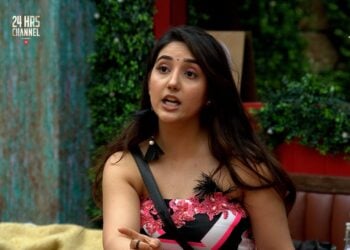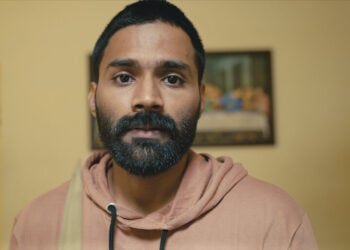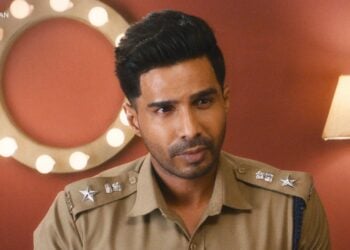The landscape of television crime dramas has been forever changed by ABC’s groundbreaking series “High Potential,” which masterfully blends procedural elements with deeply human storytelling that resonates with audiences on multiple levels. At the heart of this compelling narrative lies Kaitlin Olson’s portrayal of Morgan Gillory, a woman whose extraordinary intellectual capabilities are matched only by the complexity of her personal relationships and romantic history. As fans eagerly anticipate High Potential Season 2, Morgan’s love life continues to be a focal point that sets this series apart from conventional police procedurals through its authentic and refreshing approach to modern family dynamics.
What makes “High Potential” particularly fascinating is its commitment to portraying realistic relationship dynamics that many viewers can relate to in their own lives. Rather than falling into the typical television tropes of bitter ex-spouses and custody battles, the series presents a mature perspective on co-parenting and failed relationships that feels both authentic and hopeful. Morgan’s journey through multiple failed relationships, including her mysterious missing first husband and her amicable relationship with second ex-husband Ludo, creates a rich tapestry of human experience that adds emotional depth to every episode. This approach to character development ensures that audiences remain invested not just in the crimes being solved, but in Morgan’s personal growth and emotional evolution throughout the series.
Table of Contents
Kaitlin Olson’s Perspective on Morgan’s Complex Love Life
Kaitlin Olson brings remarkable depth and authenticity to her portrayal of Morgan Gillory, drawing from her extensive acting experience to create a character whose romantic struggles feel genuinely relatable rather than artificially dramatic. In recent interviews, Olson has revealed her deep appreciation for the series’ unconventional approach to depicting failed relationships, particularly praising creator Drew Goddard’s vision of showing peaceful co-parenting as a realistic and positive outcome. This perspective represents a significant departure from typical television portrayals where ex-spouses are often depicted as antagonistic forces rather than cooperative partners in child-rearing responsibilities.

The actress emphasizes how Morgan’s relationship history serves as a crucial character-building element that adds layers of complexity to her personality and motivations. Olson recognizes that Morgan’s multiple failed relationships, including two different fathers for her three children, paint a picture of someone who struggles with maintaining long-term romantic connections despite her intellectual brilliance. This pattern of relationship failure creates internal conflict that drives much of Morgan’s emotional journey throughout the series, making her more human and relatable to audiences who may have experienced similar relationship challenges in their own lives.
Olson’s commitment to portraying this complexity honestly has resulted in a character who feels authentic rather than idealized, allowing viewers to connect with Morgan’s vulnerabilities while admiring her strengths. The actress understands that Morgan’s romantic struggles are not separate from her professional capabilities but are instead integral to understanding who she is as a complete person. This holistic approach to character development ensures that Morgan’s love life never feels like a subplot but rather an essential component of her overall narrative arc that will continue to evolve throughout High Potential Season 2.
The Revolutionary Co-Parenting Dynamic with Ex-Husband Ludo
The relationship between Morgan and her second ex-husband Ludo, portrayed by Taran Killam, represents one of television’s most refreshing takes on post-divorce family dynamics that prioritizes children’s wellbeing over personal grievances. Rather than depicting the typical bitter ex-spouse scenario that dominates many television shows, “High Potential” presents a mature co-parenting arrangement where mutual respect and shared responsibility take precedence over past romantic disappointments. This approach not only feels more realistic to many viewers but also provides a positive model for healthy post-divorce relationships that benefit everyone involved, especially the children.

Drew Goddard’s decision to portray this peaceful co-parenting dynamic was intentionally designed to challenge conventional television narratives about failed marriages and their aftermath. The series demonstrates that two people can recognize their romantic incompatibility while still maintaining a functional partnership as parents and supporters of each other’s individual journeys. Ludo serves as the primary caregiver when Morgan is working her demanding job with the LAPD, creating a practical arrangement that allows both parents to contribute their strengths to their family unit without the drama and conflict that typically characterizes such situations in popular media.
This portrayal adds significant depth to Morgan’s character by showing her capacity for maintaining healthy relationships even when romantic love doesn’t work out as planned. The mutual respect between Morgan and Ludo suggests emotional maturity and growth that makes Morgan more admirable as a character while also highlighting the challenges she faces in finding lasting romantic partnership. Their relationship serves as evidence that Morgan’s relationship difficulties stem not from inability to connect with others but from specific challenges in maintaining romantic intimacy over time, creating intrigue about her future romantic prospects in High Potential Season 2.
Morgan’s Emotional Isolation and Personal Struggles
Despite her successful co-parenting arrangement and supportive family structure, Morgan faces profound emotional isolation that becomes increasingly apparent as the series develops her character beyond her professional achievements. Kaitlin Olson has spoken eloquently about how Morgan’s life reflects the reality of many single parents who maintain successful external appearances while dealing with deep loneliness and the weight of enormous personal responsibility. This emotional complexity adds poignancy to Morgan’s character that extends far beyond her role as a crime-solving consultant, making her personal journey as compelling as the cases she helps solve.

The actress recognizes that Morgan’s intellectual gifts, while professionally advantageous, may actually contribute to her relationship difficulties and emotional isolation in ways that create both sympathy and understanding from audiences. Morgan’s extraordinarily high IQ and unique problem-solving abilities can make it challenging for her to find romantic partners who can match her intellectual intensity while also providing the emotional connection she craves. This creates a tragic irony where the very qualities that make Morgan exceptional in her professional life may be obstacles to achieving the personal fulfillment she desires in her romantic relationships.
Olson’s portrayal captures the quiet moments of vulnerability when Morgan’s confident exterior gives way to reveal the lonely woman beneath who carries the weight of multiple failed relationships while striving to be an excellent mother and professional contributor. These moments of emotional honesty make Morgan’s character incredibly relatable to viewers who may have experienced similar feelings of isolation despite outward success. The exploration of these themes in High Potential Season 2 promises to delve deeper into Morgan’s emotional landscape while potentially introducing new romantic possibilities that could address her loneliness in meaningful ways.
The Mystery of Morgan’s Missing First Husband
The ongoing mystery surrounding Morgan’s first husband adds an intriguing layer of complexity to her romantic history that has significant implications for her emotional development and future relationship prospects. This mysterious figure represents not just a plot device for creating tension and suspense but also a crucial element in understanding Morgan’s relationship patterns and the emotional barriers that may prevent her from achieving lasting romantic happiness. The absence of this important figure in her life creates questions about trust, abandonment, and the impact of unresolved relationships on future romantic endeavors.

Recent developments in the series have revealed that Roman, Morgan’s missing first husband, is actually alive and was working as an FBI informant at the time of his disappearance, adding unprecedented complexity to Morgan’s already complicated love life. This revelation transforms what initially appeared to be a tragic loss into a situation involving deception, abandonment, and betrayal that has profound implications for Morgan’s ability to trust future romantic partners. The knowledge that Roman chose to disappear rather than communicate with his wife and family adds layers of emotional trauma that help explain Morgan’s subsequent relationship difficulties.
The Roman storyline promises to be a major focus in High Potential Season 2, as Morgan must confront not only the shock of discovering her presumed-dead husband is alive but also the emotional impact of his deliberate deception and abandonment. This confrontation will likely force Morgan to reevaluate her understanding of their relationship and marriage while also addressing the unresolved grief and anger that have influenced her subsequent romantic choices. The resolution of this mystery could either provide closure that allows Morgan to move forward romantically or create additional emotional complications that further challenge her ability to maintain lasting relationships.
The Will-They-Won’t-They Dynamic with Detective Karadec
The developing romantic tension between Morgan and Detective Adam Karadec, portrayed by Daniel Sunjata, represents one of the most compelling relationship dynamics in “High Potential” that has captured the imagination of fans who eagerly anticipate their eventual romantic connection. This classic will-they-won’t-they setup provides ongoing tension that keeps audiences engaged while also serving as a vehicle for exploring both characters’ emotional growth and professional partnership. The slow-burn nature of their developing relationship allows for natural character development that feels organic rather than forced or contrived.
Kaitlin Olson has acknowledged the fan enthusiasm for the Morgan-Karadec pairing while remaining diplomatically vague about the timeline for their potential romantic involvement, suggesting that the series creators are committed to developing this relationship at a realistic pace that serves the story rather than rushing to satisfy audience expectations. This approach demonstrates respect for both characters and recognition that their professional partnership must be firmly established before romantic elements can be authentically introduced without compromising the integrity of their work relationship or the cases they solve together.
The chemistry between Olson and Sunjata creates natural romantic tension that enhances rather than distracts from their professional interactions, making their eventual romantic involvement feel like a natural progression rather than a forced plot development. Their partnership showcases how Morgan’s unique abilities complement Karadec’s traditional detective skills while also highlighting their personal compatibility and mutual respect. High Potential Season 2 will likely continue to develop this relationship gradually, building anticipation while ensuring that their romantic connection, when it occurs, feels earned and authentic rather than rushed or superficial.

Character Development Through Relationship Patterns
Morgan’s relationship history serves as a crucial lens through which viewers can understand her character development and emotional growth throughout the series, revealing patterns that explain both her strengths and vulnerabilities in ways that make her more relatable and human. Her multiple failed relationships create a narrative thread that connects her past experiences with her current behavior and future possibilities, providing insight into the emotional factors that drive her decisions both personally and professionally. This approach to character development ensures that Morgan’s romantic life feels integral to her overall story rather than a separate subplot that distracts from the main narrative.
The series uses Morgan’s relationship patterns to explore themes of emotional intimacy, trust, and the challenges of maintaining connections when one possesses extraordinary intellectual abilities that may intimidate or alienate potential partners. Her relationship with Ludo demonstrates her capacity for mature emotional processing and conflict resolution, while her mysterious first marriage and its traumatic conclusion reveal the deep emotional wounds that continue to influence her romantic choices. These contrasting relationship experiences create a complex emotional landscape that provides rich material for ongoing character development throughout High Potential Season 2.
Olson’s portrayal captures the subtle ways that past relationship trauma influences present behavior, showing how Morgan’s professional confidence sometimes masks personal insecurities and fears about emotional vulnerability. The actress skillfully demonstrates how Morgan’s intellectual gifts can become emotional armor that protects her from potential hurt while also preventing the deep connections she craves. This complex interplay between strength and vulnerability makes Morgan’s character development feel authentic and provides multiple avenues for growth and change as the series continues to explore her emotional journey.
New Movies on Netflix 2025: The Ultimate Guide to This Year’s Must-Watch Films
Frequently Asked Questions
Q: Will Morgan and Detective Karadec finally get together in High Potential Season 2?
While Kaitlin Olson has acknowledged the strong fan interest in the Morgan-Karadec romantic pairing, she has remained diplomatically vague about specific timeline details for their potential relationship development. The pair developed a will-they-won’t-they sort of thing that has kept audiences hoping for more to blossom down the line, suggesting that the series creators are committed to developing this relationship organically rather than rushing into romance. The show’s approach to relationship development has consistently prioritized authentic character growth over quick romantic payoffs, indicating that any romantic progression between Morgan and Karadec will likely unfold gradually throughout Season 2. Olson has hinted that audiences “will get an answer” regarding their relationship status, but the timing and nature of that answer remain deliberately mysterious to maintain audience engagement and anticipation.
Q: How will the revelation about Roman being alive affect Morgan’s relationships in Season 2?
The discovery that Morgan’s presumed-dead first husband Roman is actually alive and was working as an FBI informant represents a massive emotional bombshell that will significantly impact all of Morgan’s relationships in Season 2. Roman is alive and was working as an FBI informant at the time of his disappearance, which transforms Morgan’s understanding of their marriage from tragic loss to deliberate abandonment and deception. This revelation will likely force Morgan to confront deep issues of trust and betrayal that could affect her ability to open up emotionally to new romantic partners, including Detective Karadec. The trauma of discovering that Roman chose to disappear rather than communicate with his family will probably require significant emotional processing that could temporarily complicate Morgan’s other relationships while she works through the psychological impact of this deception.








